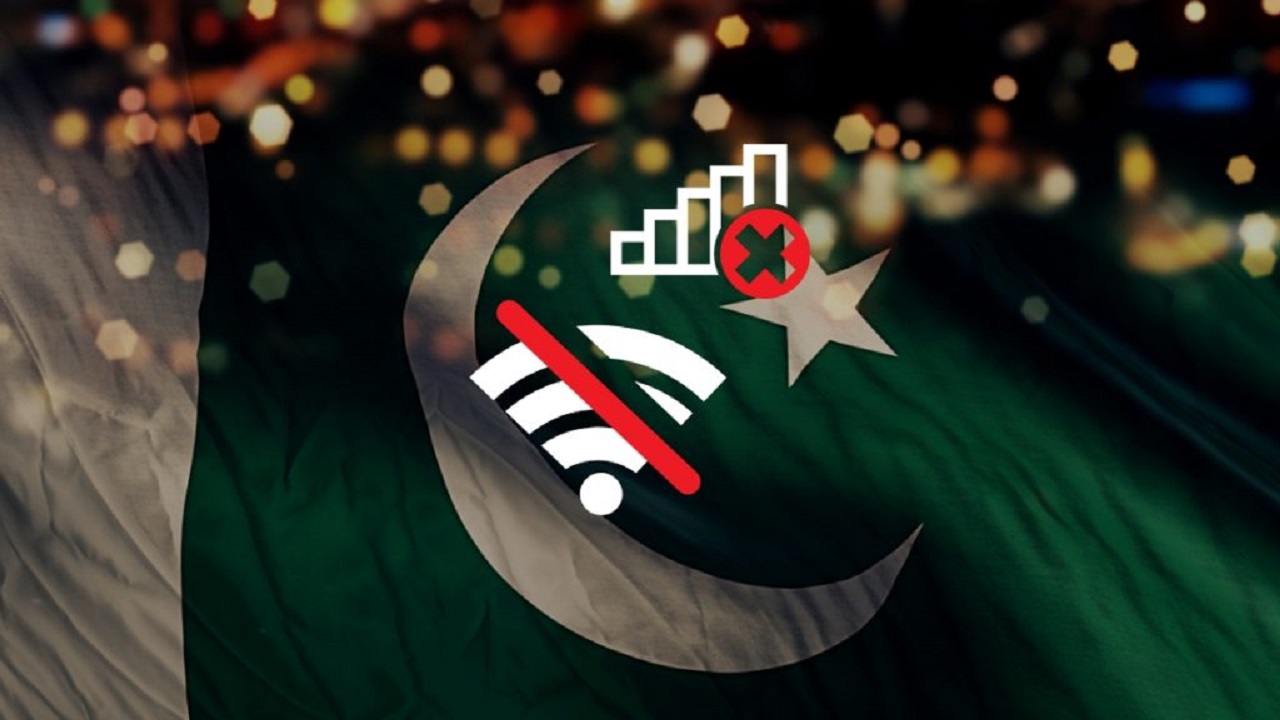A Dark Anniversary: Reflecting on 9th May and its Ongoing Impact

In a world rapidly advancing towards AI, robotics, AR/VR, blockchain, cloud computing, and other technologies, internet disruptions are considered unimaginable, even for a few hours. Unfortunately, this is not the reality for Pakistan. We seem indifferent to keeping up with modern tech trends and appear unconcerned about our deteriorating economy, as evident by the events of the past year. Internet shutdowns have plagued Pakistan since 2005, but the extent of government abuse of this power post 9th May, 2023 is unprecedented.
On May 8, 2023, the arrest of former Prime Minister Imran Khan sparked nationwide demonstrations, many turning violent, and the army was called in response.
Human rights in Pakistan took a plunge to an extraordinary degree in the wake of these violent political protests and a wide range of human rights issues. Following the violence on May 9, government suspended internet services for nearly four days across much of Pakistan. This internet shutdown started a never-ending series of problems for our country and its citizens.
Today marks the first anniversary of the incident and we still haven’t been able to recover from its catastrophic impact. Even now, in 2024, Twitter has been blocked in the country for the past three months.
A Black Day for National Economy
In an age where everything is digital, the impact of internet shutdowns is devastating. A study by the Pakistan Institute of Development Economics (PIDE) revealed that a 24-hour shutdown resulted in a direct loss of Rs1.3 billion, equivalent to 0.57% of the daily GDP average. Online cab services, food delivery, freelancers, transport, and postal services all suffered due to internet disruptions. For instance, online cab services experienced a 97% reduction in rides, equating to a daily loss of Rs29 to 32 million. Similarly, food delivery services saw a 75% drop in orders, resulting in a loss of Rs135 million per day. Freelancers lost over $1.3 million in revenue, affecting the livelihoods of many and the national economy. The suspension of 3G/4G services for a single day caused a loss of PKR 450 million to the telecommunication sector alone.
A complete internet shutdown was imposed after the 9th May incident for three days, whereas a blanket internet shutdown was also imposed on February 8, 2024. The cumulative impact of this four-day internet shutdown is even more staggering. In addition to that, a number of companies, including tech startups, were closed down in the country, while brain drain also escalated as 860,000 Pakistanis left the country to work abroad.
A Black Day for Freedom of Expression
The internet shutdowns post-May 9th not only crippled the national economy but also marked the beginning of brutal infringement on the already fragile digital freedom of Pakistanis. Amid the internet shutdowns, first the people’s right to information was curtailed, followed by an amendment to the FIA Act of 1974. A law empowering the agency to arrest individuals for posting ‘anti-state’ content on social media.
Pakistan Telecommunication Authority (PTA) already had near-unrestricted powers to block and control content over the internet. The citizens’ right to criticize the government and its policies cannot be termed an attempt at inciting mutiny. Hence, this new law is seen as nothing else but a means to silence the critics and the opposition. A few people, including journalists, have been arrested under the new law.
On February 8, the government imposed a ban on X (Twitter) that persists today. People have been using VPN services since then to access X (Twitter). Later, the government started to block VPN connections, which was confirmed by Surfshark, a popular VPN. The government also started internet throttling to slow down the internet speed, especially during the digital events created by Pakistan Tehreek-e-Insaaf (PTI).
9th May Anniversary: The Ongoing Struggle for Digital Freedom
After giving unprecedented powers to the FIA to safeguard “so-called digital rights of people” and “counter propaganda and rumors on social media,” the government has now announced the establishment of the National Cyber Crimes Investigation Agency (NCCIA), rendering the Federal Investigation Agency’s (FIA) Cybercrime Wing “defunct.”. The creators of the NCCIA failed to justify why the FIA’s efforts were inadequate to address cybersecurity needs or how this new entity will safeguard citizens’ privacy and security.
Just Today, Prime Minister Shehbaz Sharif has approved a draft amendment to the Prevention of Electronic Crimes Act (PECA) 2016, enabling the government to regulate social media through legislation. The proposed PECA Amendment Bill 2024 establishes a Digital Rights Protection Authority, which will be empowered to monitor and control online content, investigate violations, and act against individuals who breach the new law. This authority will also have the power to demand information from citizens and witnesses and establish rules to enforce digital rights. But the important question here is, how will the government enforce the digital rights of the people if, in fact, it is the one violating those rights? In the rush for cybersecurity, let’s avoid becoming an intrusive state that unnecessarily intrudes into citizens’ lives for less-than-noble purposes.
ALSO READ: Disconnected Nation: Unraveling the Impact of Internet Shutdowns in Pakistan
PTA Taxes Portal
Find PTA Taxes on All Phones on a Single Page using the PhoneWorld PTA Taxes Portal
Explore NowFollow us on Google News!





